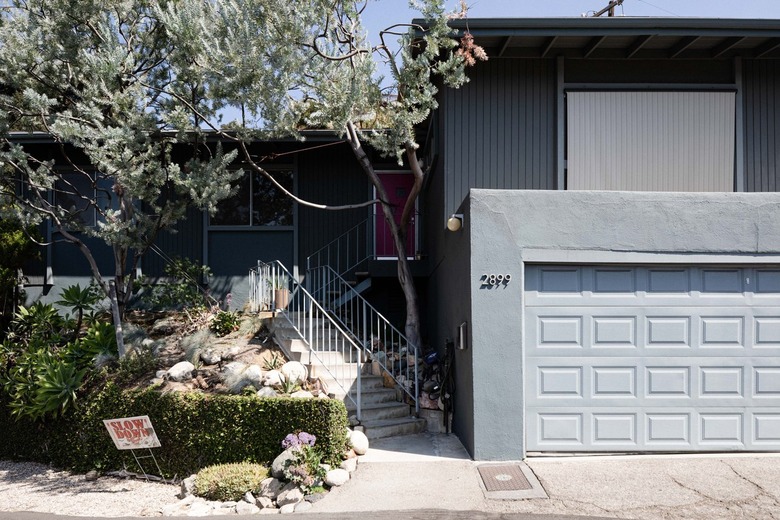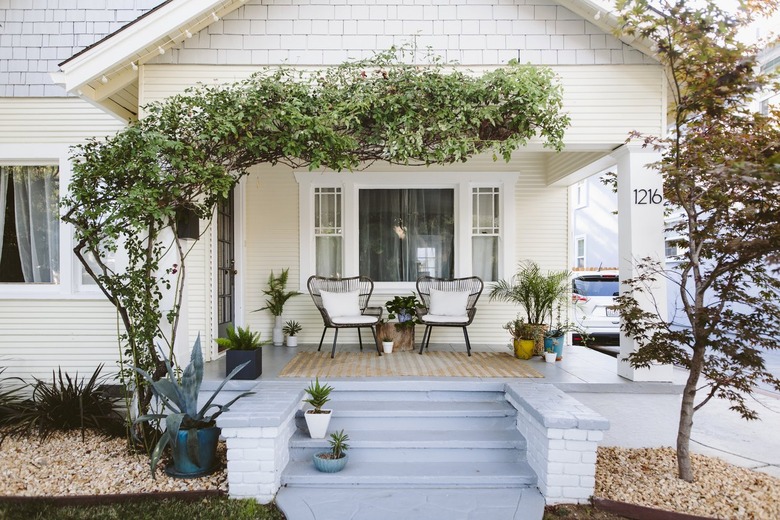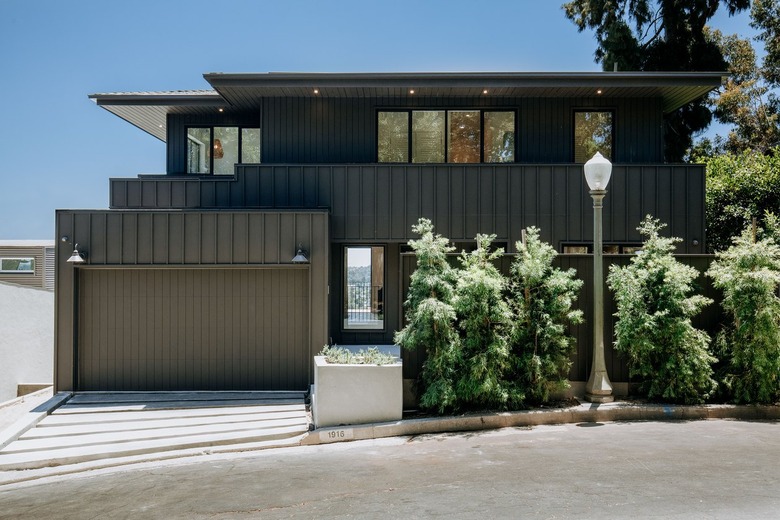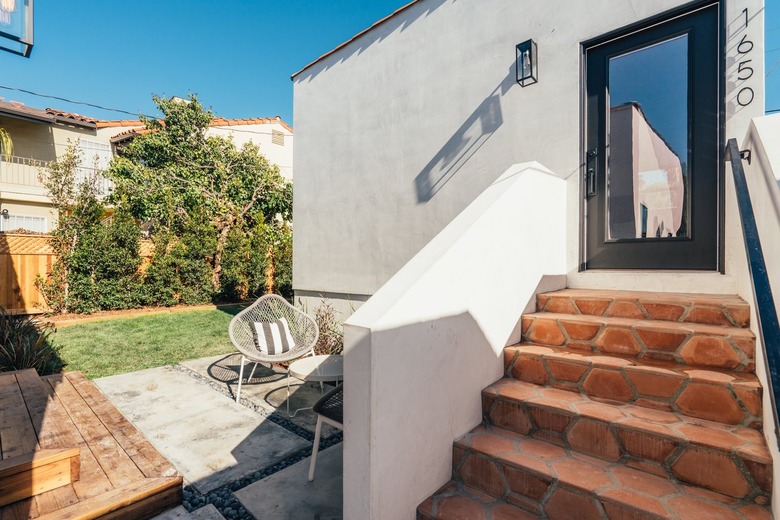What Are Co-Ownership Homes And Why Are They So Popular?
Highlights
- A co-ownership home arrangement allows multiple people to purchase property together.
- Buying a home with multiple owners can allow individuals
to purchase a home that would otherwise be out of their price range. - There are many types of co-ownership agreements,
but the most common are tenancy in common and joint tenancy. - Getting a mortgage for co-owned homes can be challenging, and they may be hard to sell.
Ever wish you could buy a vacation home in Colorado, a seven-bedroom Victorian manor, or literally any home in San Francisco? While these may ordinarily be out of reach, a co-ownership home agreement could make this dream into a reality. Co-ownership home agreements allow you to pool your money with other aspiring homeowners to buy a property you may not be able to afford on your own.
Whether you are a millennial who always thought homeownership was unrealistic or someone who dreams of buying a luxury home out of your price range, co-owned home arrangements are a sound way to purchase your dream home. But co-owning a property isn't for everyone. We spoke with a few real estate experts to learn the ins and outs of home co-ownership so you can decide if this type of home purchase is right for you.
What Is Co-Ownership of a Property?
What Is Co-Ownership of a Property?
Home co-ownership is when two or more people share ownership of a single dwelling. Each owner has a share of the home and is listed on the title. Owners frequently also share a mortgage, though this is not always true.
"Co-ownership can allow multiple individuals to pool their resources and buy a property that they might not be able to afford on their own," Paul Martinez, real estate expert, tells Hunker. "Co-ownership can also provide social and emotional benefits, such as sharing responsibilities and building a community with other co-owners," he says.
What Is a Co-Ownership Home?
What Is a Co-Ownership Home?
A co-ownership home is a dwelling owned by multiple people who enter a co-ownership agreement that ties each of them to the shared property.
How Popular Is Home Co-Ownership?
How Popular Is Home Co-Ownership?
Although co-ownership agreements have existed for a long time, they are becoming increasingly common as real estate prices continue to soar.
"Co-ownership has become increasingly popular in recent years, particularly among those who are looking for affordable ways to own property or invest in real estate," Boyd Rudy, team leader and associate broker at MiReloTeam of Keller Williams Realty Living, tells Hunker. "I expect co-ownership to continue to be a popular option for people who are looking to own property, particularly in urban areas where property prices are high."
Types of Home Co-Ownership Agreements
Types of Home Co-Ownership Agreements
One thing that makes it harder for people to understand what co-ownership means is that there are many ways to arrange such an agreement. While tenancy in common and joint tenancy are the two most common forms of home co-ownership, they are not the only options available to aspiring homeowners. Here are the most common types of co-ownership agreements and how they differ.
Tenancy in Common
When most people talk about a co-ownership home arrangement, they mean a situation where each co-owner owns a distinct share of the property, allowing them to sell, transfer, lease, or mortgage their interest without the consent of the other owners. This arrangement is known as tenancy in common. "When a co-owner dies," Rudy says, "their share passes to their heirs rather than to the other co-owners."
Not all property shares need to be equal; they will instead be based on how much each party contributes to the purchase. While co-owners may agree to live in the home together, they are not obliged to do so. So, for example, if a young adult agrees to buy a home with their parents, who put in 25 percent of the money and get 25 percent of the interest, their contract may stipulate that only the young adult and their family live on the property.
Joint Ownership
Unlike a tenancy in common, joint ownership (also known as joint tenancy with rights of survivorship) "is where all co-owners have an equal share in the property" regardless of how much they contribute to the purchase, says Rudy. "If one of the owners dies, their share automatically passes to the surviving owners." Like tenancy in common, investors can still sell their share without the other owner's consent, and not everyone who contributed to the purchase has to live in the home.
Because the shares of a deceased co-owner go to the home's other owners rather than to the deceased's heirs, these agreements are most commonly made between friends and family members. To create a joint tenancy agreement, owners must adhere to the "four unities" by:
- Taking control of their ownership interest at the same
time - Sharing an equal interest in the property
- Having the same title in the deed
- Equally splitting access and usage rights to the
property
Community Property
This co-ownership arrangement applies only to couples who live in the nine states with community property laws: Arizona, California, Idaho, Louisiana, Nevada, New Mexico, Texas, Washington, and Wisconsin.
"Under community property law, all assets acquired during the marriage are considered jointly owned by both spouses regardless of who acquired them," explains Martinez. Each person in the relationship must decide what they want to happen to their share when they die because the property will not automatically be transferred to the spouse under this arrangement.
Residents of community property states who do not want to co-own a home with their spouse under this arrangement must sign a prenuptial or postnuptial agreement stipulating the portion of property each partner owns.
Tenancy by the Entirety
Like community property, tenancy by the entirety agreements exist only between spouses and divide the property equally between the parties regardless of how much each contributed. This arrangement is available in 26 states and differs from community property in that when one spouse dies, the other automatically inherits the home.
Aside from the fact that tenancy by the entirety can only involve married parties, it also differs from joint tenancy in that neither spouse can sell or transfer their share without their partner's consent.
Who Can Co-Own a Home?
Who Can Co-Own a Home?
Technically, anyone could buy a home together, including friends, family members, businesses, or even strangers. Because you typically want to get along with the person with whom you own a home, though, it's best to choose family members or close friends you know you can trust. Whom you purchase a home with should impact which type of arrangement you choose.
Married couples have unique options available that may be standard in their state of residency. At the same time, those buying a home with the help of an investment from a company or a lesser-known acquaintance would probably want to choose a tenancy in common to ensure each owner receives a share equal to their investment and can pass their interest to their chosen beneficiaries.
As for how many people can come together to purchase a property, "there is no hard and fast rule about how many people can or should co-own a home together, as it will depend on the specific circumstances and the goals of the co-owners," explains Rudy. "However, there are some practical considerations to keep in mind." He says that more owners mean more opinions and conflicts about how a property should be used or maintained.
Additionally, having more than four people involved in a purchase can make obtaining a mortgage for the home very difficult. "Larger groups of co-owners may require more complex legal and financial arrangements to ensure the property is properly managed and maintained," he says.
Starting a Co-Ownership Agreement
Starting a Co-Ownership Agreement
To make purchasing a co-ownership home go as smoothly as possible, investors must draft and sign a legally binding agreement before the sale is complete. The one exception is when someone buys a home with a spouse in a state that uses either community property or tenancy by the entirety arrangements by default and the couple doesn't want to set up a different agreement. A lawyer should be involved in drafting co-ownership contracts because these documents are complex and must be able to hold up in court. The paperwork should always:
- Identify the co-owners, including each person's
percentage of ownership, financial responsibilities, and legal obligations - State the type of co-ownership
- Describe the home
- Define rules and guidelines "for
decision-making, expense-sharing, use of the property, and dispute resolution,"
says Rudy - Detail what will happen if any party wants to
terminate the agreement. "This may include a right of first refusal," notes
Rudy, "which gives the other co-owners the option to buy out the departing
co-owner's share."
Once all parties review and sign the co-ownership agreement, it will be legally binding. If necessary, though, Rudy notes that it is possible to modify these contracts as time goes on and new issues arise, though again, this is best done with the help of an attorney.
What Rules Should Co-Owners Follow?
What Rules Should Co-Owners Follow?
"Co-owners of a property have certain rights and responsibilities that they must abide by to ensure that the property is managed and maintained properly," says Martinez. Many of these details should be stated explicitly in the co-ownership agreement, but even those that are not should at least be agreed upon before purchasing a property. Here are some things you should be prepared to do if you plan to co-own a home with other people.
Agree on Property Usage
The first thing on which you must agree when purchasing a home with someone is how the house will be used. If the property will be a vacation home, Rudy says the owners "need to establish guidelines for how the property will be used by each co-owner, including how often they can use it and for how long."
If the home will be used and shared as a primary residence, owners should agree on who will live in each room before a home sale is completed so there are no arguments over who can lay claim to any particular bedroom or bathroom.
Share Expenses
"Co-owners are responsible for sharing the expenses associated with the property, including mortgage payments, property taxes, insurance, and maintenance costs," says Martinez. Depending on the type of arrangement, owners may also need to share utility costs. This system needs to be fair and equitable and may include setting up a joint bank account for paying home-related expenses or dividing expenses according to each owner's percentage of the share.
Maintain the Property
Anyone who purchases a home should be prepared to handle the upkeep of the property, but with a co-owned home, "co-owners should establish a maintenance schedule and budget to ensure that the property is well-maintained," says Martinez. Maintenance can include upkeep tasks like landscaping, housecleaning, winterizing, painting, pest control, and repair services for when things inevitably go wrong. The last thing you want to do as a co-owner is waste time arguing about who will pay to hire a plumber as a water leak floods your bathroom.
Make Decisions Jointly
Because more than one person has a financial stake in the property, everyone with a share in the home should work together to make decisions about the property, including how and when renovations, repairs, or upgrades will be performed. While these choices should be made in a democratic matter as much as possible, things may sometimes be complicated by the type of agreement, the relationship between co-owners, and if one party is affected more than others.
As an example, if two people in a tenancy in common agreement disagree about whether the house needs a new front door, the owner with a 75 percent stake may overrule the owner with a share of only 25 percent. On the other hand, in a joint tenancy where everyone involved lives in the house, if one owner wants to install a ceiling fan in their bedroom, their opinion may have more weight because the decision involves their private space.
When co-owners cannot agree on a decision, they should use the dispute-resolution process detailed in their co-ownership agreement. "This may include mediation or arbitration," says Rudy, "or some other form of dispute resolution agreed upon by all co-owners."
Be Respectful of Each Other
Making decisions in a co-ownership home can be difficult, so co-owners must respect each other's rights and property. Martinez says they "should not use the property without the other co-owner's permission and should respect each other's privacy and personal space."
Finding a Mortgage for a Co-Ownership Home
Finding a Mortgage for a Co-Ownership Home
"Getting a mortgage for a co-owned house can be more challenging than getting a mortgage for a single-owner property," says Martinez. "Lenders typically prefer to lend to single owners who have a clear and unencumbered claim to the property." Speak with a mortgage broker or loan officer to find the best type of loan for your unique situation. The most common loans used in co-owned home arrangements include:
- Joint mortgages: These loans hold two or
more people jointly responsible for payments. With this loan, each co-owner's
income and credit score will be considered, and lenders will typically base their
interest rate on the lowest credit score of the group. - Fractional loans: These mortgages are explicitly
used for properties with shared ownership and require each co-owner to be
responsible for their part of the mortgage payment. Interest rates are
typically higher on fractional loans, and fewer institutions offer these mortgages. - Personal loans: Those who do not want to
share a mortgage with their co-owners may find it simpler to obtain a personal loan for
their portion of the purchase. - Home equity loans or lines of credit:
Once a co-ownership home has been purchased, the owners may be able to
take out a loan or line of credit to cover the cost of renovations or significant
repairs to the home.
Only purchase a home with individuals you trust to pay off their portion of the debt. When a joint mortgage is used to purchase a home, Rudy notes that "if one co-owner defaults on the loan, the other co-owners may be responsible for making up the missed payments." If the other owners cannot afford their mortgage payments, the loan could end up in default, and the home could even be foreclosed.
Lenders are concerned about this risk, which is one reason they are more cautious about lending to groups rather than individuals. To help protect themselves, Martinez says, "lenders may require a larger down payment or higher credit scores from co-owners to mitigate the increased risk associated with co-ownership."
Selling a Home With Multiple Owners
Selling a Home With Multiple Owners
Co-owned properties are more challenging to sell than traditional homes, but the precise difficulty level varies depending on the details of the ownership agreement. Selling a house with more than one owner is most difficult when an owner must obtain the approval of their co-owners before selling.
Even if all the other owners agree on the sale price and terms, though, Martinez notes that "potential buyers may be hesitant to purchase a co-owned property due to the complexities and potential risks associated with co-ownership." To make matters worse, a prospective investor in a co-owned property may still change their mind or be unable to complete the sale if they cannot find a suitable loan for such an endeavor since financing co-ownership homes can be challenging.
Having a strong, clear, and well-defined co-ownership agreement in place can help make the selling process go as smoothly as possible, as can working with a knowledgeable real estate agent who has experience selling co-owned homes.
The Pros and Cons of Co-Ownership Homes
The Pros and Cons of Co-Ownership Homes
"Overall, co-ownership can be a viable option for individuals who are willing to work together and share the responsibilities and benefits of property ownership," says Rudy. "However, it is important to carefully consider the potential pros and cons before entering into a co-ownership arrangement." Before deciding to purchase a home in this manner, consider both the advantages and drawbacks, which could include:
Pros
- Being able to afford a home that may otherwise be out of your price range or having the opportunity to invest in a rental or vacation home without needing to finance the property on your own
- Enabling you to ask for help with the cost of homeownership without asking for a handout
- Spending less of your paycheck on rent or mortgage payments
- Having financial or physical aid to make maintenance and repairs easier and less costly
- Building equity without purchasing an entire home on your own
- Dividing the cost of utilities or even food if you share the house with your co-owners
- Having someone to share your home with if you live with your co-owners
Cons
- Needing to seek approval from your co-owners on decor, repair, maintenance, or even selling your share of the home
- Making decisions about the home can be difficult and may result in conflict arising between you and your co-owners, which could potentially harm your personal relationship with friends or family members
- Getting a mortgage may be more difficult, and your interest rates may be higher
- Sharing financial liability with someone else and being on the hook if they fail to keep up with their portion of the mortgage or utility bills
- Possibly owning a home with a stranger if a co-owner sells their share or passes away
- Selling your share could be difficult, even if the other owners agree to the sale
- Being unable to use the home whenever you want if it was purchased as a vacation property
- Having less privacy and less space if you live with your co-owners
- Needing to work with an attorney to create, modify, or terminate a homeownership agreement
Tips for Prospective Co-Owners
Tips for Prospective Co-Owners
Co-owning a home can help you reduce the cost and responsibilities of homeownership. Still, you must consider all the risks and potential problems to ensure a positive experience. Our experts have the following advice for those considering buying a home using a co-ownership agreement.
Choose Partners Carefully
"Co-owning a home requires trust, communication, and a shared vision for the property," says Martinez. "Be sure to choose co-owners who share your values and financial goals and who are committed to maintaining a positive and respectful relationship."
Rudy adds, "It is also important to ensure that everyone involved is financially responsible and able to contribute to the expenses of the property." Start discussing your income and credit scores together from the early stages of the process so you get a good idea of what you could reasonably afford to buy.
Create a Detailed Co-Ownership Agreement
"Having a legal agreement in place that outlines the responsibilities and obligations of each co-owner can help to avoid conflicts down the road," says Rudy. "Make sure that the agreement covers all possible scenarios, such as what happens if one co-owner wants to sell the property or what happens if one co-owner is unable to contribute to the expenses of the property."
Seek Professional Advice
"Co-owning a home can be complex," warns Martinez, "and it's important to seek advice from professionals such as attorneys, financial advisers, and real estate agents to ensure you have a solid understanding of your legal and financial obligations." You may also want to speak with a tax adviser to understand how much your portion of the property taxes will be.
Consider Financing Options
"Make sure to shop around for the best mortgage rates and terms," advises Rudy, "and to consider how the mortgage payments will be split among the co-owners."
Communicate Openly and Regularly
"Good communication is essential for a successful co-ownership arrangement," advises Martinez. "Be sure to regularly check in with your co-owner(s) and address any concerns or issues promptly to avoid misunderstandings."
Plan for the Unexpected
"While you can't predict every possible scenario," explains Martinez, "it's important to have contingency plans in place for unexpected events, such as a co-owner's death or inability to meet financial obligations."
Rudy also suggests all co-owners "have an exit strategy in place in case one of the co-owners wants to sell their share in the property or if the co-owners decide to sell the property altogether."




